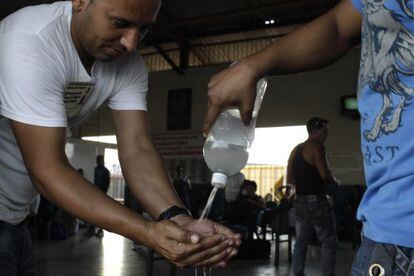Cuba scrambles to contain cholera outbreak in Havana
Health Ministry says more than 50 cases have been confirmed


Cuban authorities are rushing to contain a cholera outbreak that has afflicted more than 50 people across Havana. In a rare statement published Tuesday in the official Communist Party newspaper Granma , the Health Ministry said that measures have been set in place since January 6 after dozens of residents began suffering from "acute diarrhea" symptoms.
"Fifty-one cases have been confirmed to date," the statement read, without mentioning any fatalities. "Due to the measures adopted, transmission is in the phase of extinction."
But various independent reports by journalists working on the communist island say that the situation is more severe than officially reports are making out, with at least one death from the outbreak so far.
Journalists working in Cuba say the situation is worse than officals report, with at least one death so far
Among the measures that have been put in place by authorities are the mandatory washing of hands in public places, such as bus stops, schools, markets and government offices. Officials are also distributing hand disinfectants to the general population. Television spots are advising people not to eat in restaurants for the time being.
Sources said that the government believes that the first cases were traced to a baseball match at the Latin American Stadium in Havana's Cerro municipality. "We know what happened - either the pork sandwiches or Tan Rico soda pop was contaminated at a game earlier this month," an official told Reuters news agency.
Last year, Cuban authorities scrambled to contain another outbreak of cholera in the eastern Granma province - the first such case in decades. The outbreak was quickly contained.
Travel rules ease
In another event, Cubans began lining up at the Immigration and Foreign Travel Office (DIE) on Monday to begin applying for passports to travel abroad under a new policy that eases the restrictions on residents leaving the island.
Under the new rules, which were announced last year, Cubans will no longer need special permission - the so-called "white card" - or a letter of invitation from a host country as was required in the past, in order to travel abroad. All that is needed is a payment of 100 Cuban pesos (some 80 euros) to obtain a passport. But the cost is still exorbitant for many Cubans, who earn an average of about 20 pesos a month.
Rodrigo, who just turned 20, said his plans were to travel to Italy "but return each year to Cuba for my vacation."
Cubans will now be able to remain abroad for up to two years under the amendment to the 1976 Immigration Act that was first announced last October.










































